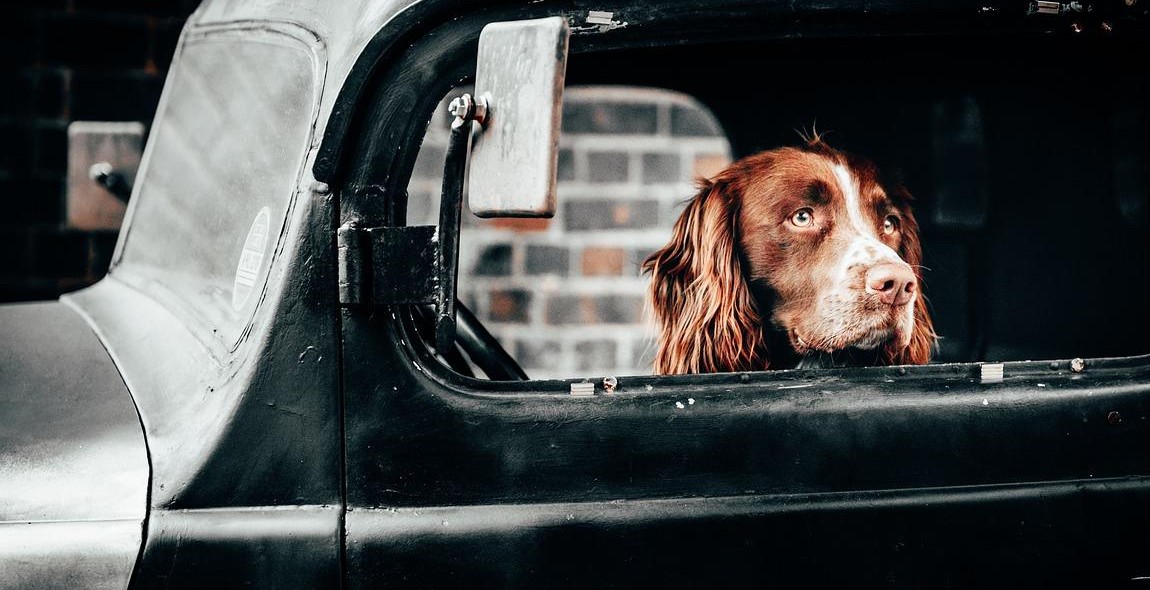How to Choose the Right Breed of Dog for Your Family: Temperament, Size, and Lifestyle Considerations
As a professional article writer and content creator with years of experience, I have seen families struggle with choosing the right breed of dog for their household. While the idea of having a furry friend in your life is exciting, selecting a breed that matches your family’s lifestyle, temperament, and size is crucial.
Why Choosing the Right Breed of Dog is Important
Choosing the right breed of dog for your family is essential for a happy and healthy relationship between you and your furry friend. A dog that is not compatible with your lifestyle or temperament can cause stress, anxiety, and even aggression. It’s not just about finding a cute or popular breed – it’s about finding a breed that fits your family’s needs and personality.
In this article, I will share my personal experience and knowledge on the different factors to consider when choosing the right breed of dog for your family. From temperament to size to lifestyle considerations, I will provide you with the information you need to make an informed decision and find the perfect furry companion for your household.
So, let’s dive in and discover how to choose the right breed of dog for your family!

Temperament Considerations
When it comes to choosing the right breed of dog for your family, temperament is one of the most important factors to consider. Some breeds are energetic and playful, while others are calm and docile. There are also breeds that are protective and loyal. Here are some of the temperament considerations you should keep in mind:
Energetic and Playful Breeds
If you have an active family that enjoys spending time outdoors, an energetic and playful breed might be the perfect fit for you. These breeds are known for their high energy levels and love of play. They require plenty of exercise and mental stimulation to stay happy and healthy.
Examples of energetic and playful breeds include:
- Labrador Retriever
- Golden Retriever
- Australian Shepherd
- Siberian Husky
Calm and Docile Breeds
On the other hand, if you prefer a more laid-back lifestyle, a calm and docile breed might be a better fit. These breeds are known for their relaxed and gentle demeanor, and they typically require less exercise than their more energetic counterparts.
Examples of calm and docile breeds include:
- Bulldog
- Bichon Frise
- Cavalier King Charles Spaniel
- Shih Tzu
Protective and Loyal Breeds
If you’re looking for a dog that will serve as a loyal and protective companion, there are breeds that are known for their fierce loyalty and protective instincts. These breeds are often used as guard dogs or police dogs and require a firm and consistent hand in training.
Examples of protective and loyal breeds include:
- German Shepherd
- Rottweiler
- Doberman Pinscher
- Bullmastiff
| Breed | Temperament |
|---|---|
| Labrador Retriever | Energetic and Playful |
| Golden Retriever | Energetic and Playful |
| Australian Shepherd | Energetic and Playful |
| Siberian Husky | Energetic and Playful |
| Bulldog | Calm and Docile |
| Bichon Frise | Calm and Docile |
| Cavalier King Charles Spaniel | Calm and Docile |
| Shih Tzu | Calm and Docile |
| German Shepherd | Protective and Loyal |
| Rottweiler | Protective and Loyal |
| Doberman Pinscher | Protective and Loyal |
| Bullmastiff | Protective and Loyal |

Size Considerations
When choosing the right breed of dog for your family, size is an important consideration. Different breeds come in different sizes, and the size of your dog can affect your daily life in various ways. Here are some things to consider when it comes to size:
Small Breeds
Small breeds are great for families who live in smaller spaces or apartments. They are also perfect for families who travel a lot and want to take their dogs with them. Small dogs are generally easy to handle and require less exercise than larger breeds. However, they are also more fragile and may not be suitable for families with small children who may accidentally injure them. Some popular small breeds include:
- Chihuahua
- Pomeranian
- Shih Tzu
- Poodle
Medium Breeds
Medium breeds are a good compromise between small and large breeds. They are usually more active than small breeds and require more exercise, but they are also more sturdy and can handle rough play with children. Medium breeds are ideal for families who have a moderate amount of space and are willing to commit to regular exercise for their dogs. Some popular medium breeds include:
- Beagle
- Bulldog
- Cocker Spaniel
- Boxer
Large Breeds
Large breeds are best suited for families who have a lot of space and are willing to commit to regular exercise for their dogs. They are also great for families who want a dog for protection or as a working animal. However, large breeds require a lot of food and can be expensive to care for. They are also more difficult to handle and may not be suitable for families with small children or elderly members. Some popular large breeds include:
- Labrador Retriever
- German Shepherd
- Golden Retriever
- Rottweiler
| Size | Exercise Needs | Suitability for Small Children | Space Requirements |
|---|---|---|---|
| Small | Low | Not ideal | Small spaces |
| Medium | Moderate | Suitable | Moderate spaces |
| Large | High | Not ideal | Large spaces |

Lifestyle Considerations
Choosing the right breed of dog for your family is not an easy task. It requires careful consideration of various factors, including the lifestyle of your family. Below are some lifestyle considerations to keep in mind when choosing a breed of dog:
Active and Outdoorsy Families
If you are an active and outdoorsy family, you need a dog that can keep up with your lifestyle. Breeds like Labrador Retrievers, Australian Shepherds, and Border Collies are perfect for families who love to hike, run, and play outdoors. These breeds are high-energy and require a lot of exercise, so they are not suitable for families who cannot commit to regular physical activity with their dog.
Families with Children
If you have children, you need a breed of dog that is gentle, patient, and good with kids. Breeds like Golden Retrievers, Beagles, and Boxers are great family dogs that are known for their friendly and playful nature. It is important to supervise interactions between your children and the dog to ensure that both the dog and the children are safe.
Families with Seniors or Individuals with Disabilities
If you have seniors or individuals with disabilities in your family, you need a breed of dog that is gentle, easy to train, and not too energetic. Breeds like Poodles, Cavalier King Charles Spaniels, and Bichon Frises are great companion dogs that are easy to train and do not require a lot of physical activity.
Apartment or Small Living Spaces
If you live in an apartment or have a small living space, you need a breed of dog that is small in size and does not require a lot of space. Breeds like Chihuahuas, Yorkshire Terriers, and French Bulldogs are great apartment dogs that are small in size and do not require a lot of exercise. It is important to note that even small dogs require regular exercise and mental stimulation to stay healthy and happy.
| Lifestyle | Recommended Breeds |
|---|---|
| Active and Outdoorsy Families | Labrador Retrievers, Australian Shepherds, Border Collies |
| Families with Children | Golden Retrievers, Beagles, Boxers |
| Families with Seniors or Individuals with Disabilities | Poodles, Cavalier King Charles Spaniels, Bichon Frises |
| Apartment or Small Living Spaces | Chihuahuas, Yorkshire Terriers, French Bulldogs |

Conclusion
Choosing the right breed of dog for your family is a big decision that requires careful consideration. By taking into account factors such as temperament, size, and lifestyle, you can find a dog that will be a perfect fit for your family.
Temperament
It’s important to choose a breed with a temperament that matches your family’s lifestyle. If you have young children, you may want to consider a breed that is known for being gentle and patient. If you’re looking for a guard dog, you may want to consider a breed that is protective and loyal.
Size
The size of your dog is also an important consideration. If you live in a small apartment, you may want to consider a smaller breed that doesn’t require a lot of space. If you have a large yard, you may want to consider a larger breed that needs room to run and play.
Lifestyle
Your lifestyle is another important factor to consider when choosing a breed. If you’re an active family that loves to hike and spend time outdoors, you may want to consider a breed that is energetic and loves to exercise. If you’re a more laid-back family, you may want to consider a breed that is more relaxed and doesn’t require as much activity.
Ultimately, the most important thing is to choose a breed that fits your family’s unique needs and lifestyle. With so many breeds to choose from, there’s sure to be a perfect match out there for you.
